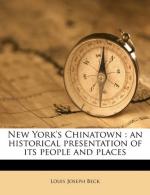|
This section contains 746 words (approx. 3 pages at 300 words per page) |

|
Absolutist Trend. The political structure of the Song dynasty (960-1279) was based on the coexistence of independent departments and a system of checks and balances. Political decisions were the topic of discussions in which conflicting opinions could be freely expressed. An absolutist trend, however, began to appear in Song times and advanced further under the Mongols. By the early Ming era (1368-1644) all power had become concentrated in the hands of the emperor. The unchecked growth of imperial power in the late fourteenth century was regarded as the political character of Ming times. The reason for this trend was that the Ming empire was established by a peasant who felt an instinctive mistrust of scholars, which forced him to control directly the government and the civil service.
Authoritarianism. In 1380 Emperor Hongwu cancelled the post of grand secretariat and assumed direct control...
|
This section contains 746 words (approx. 3 pages at 300 words per page) |

|




